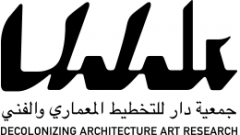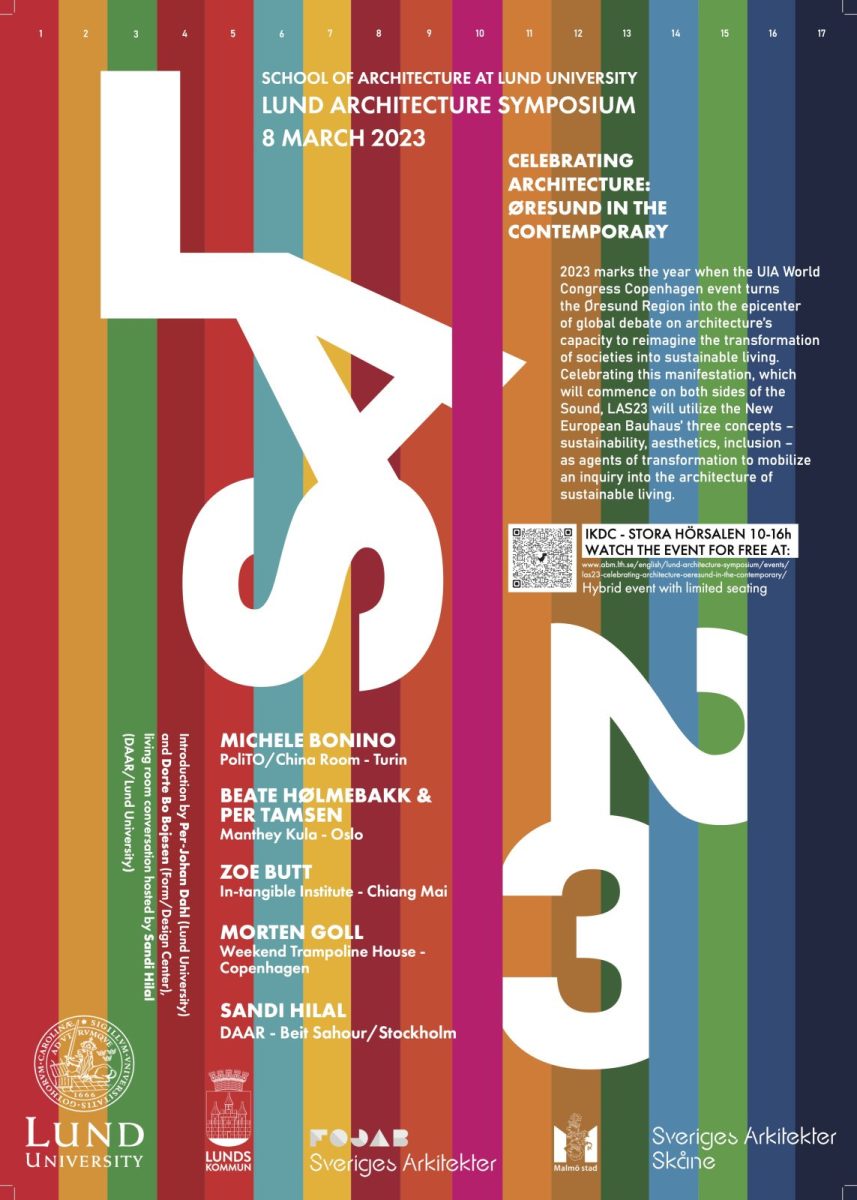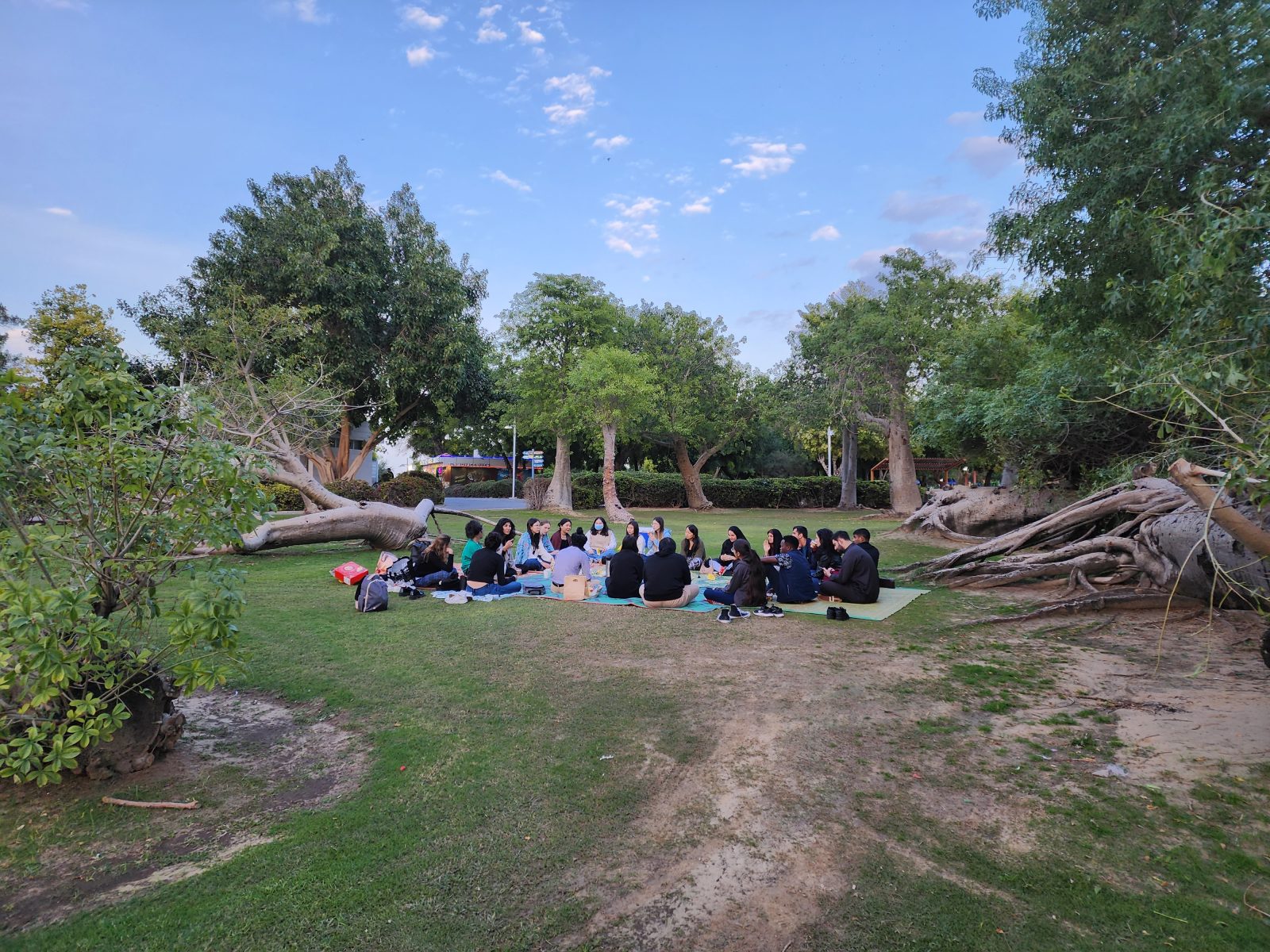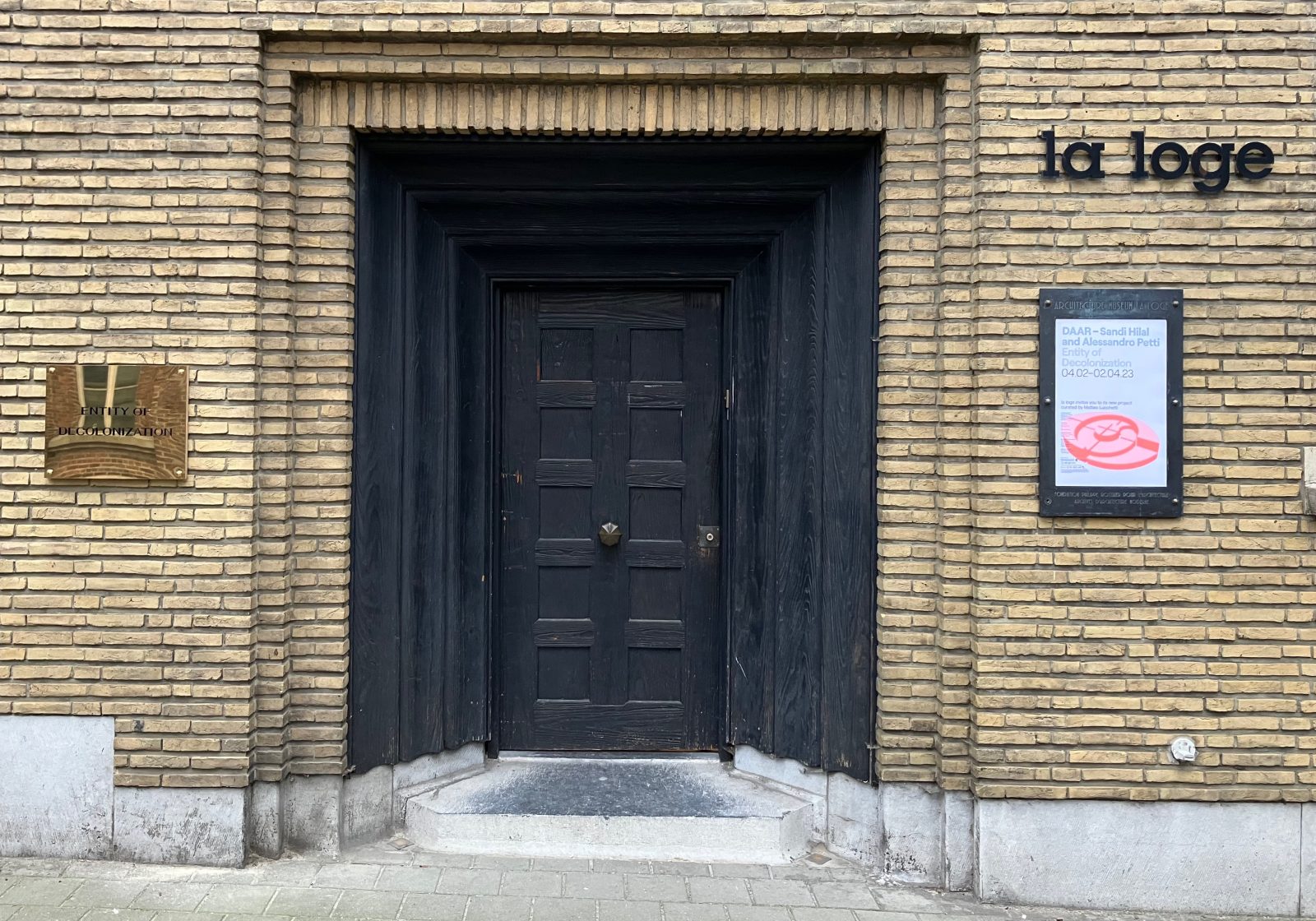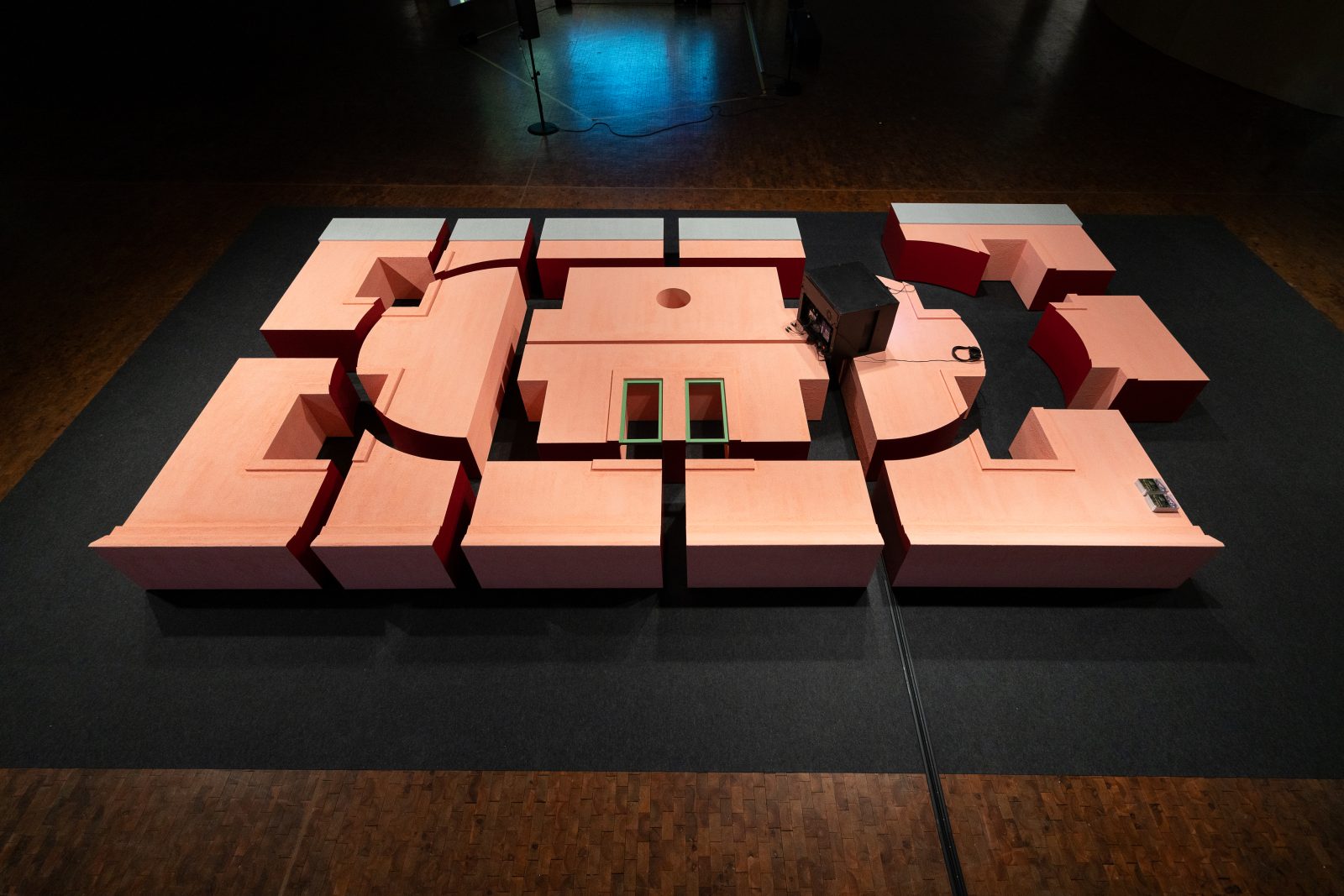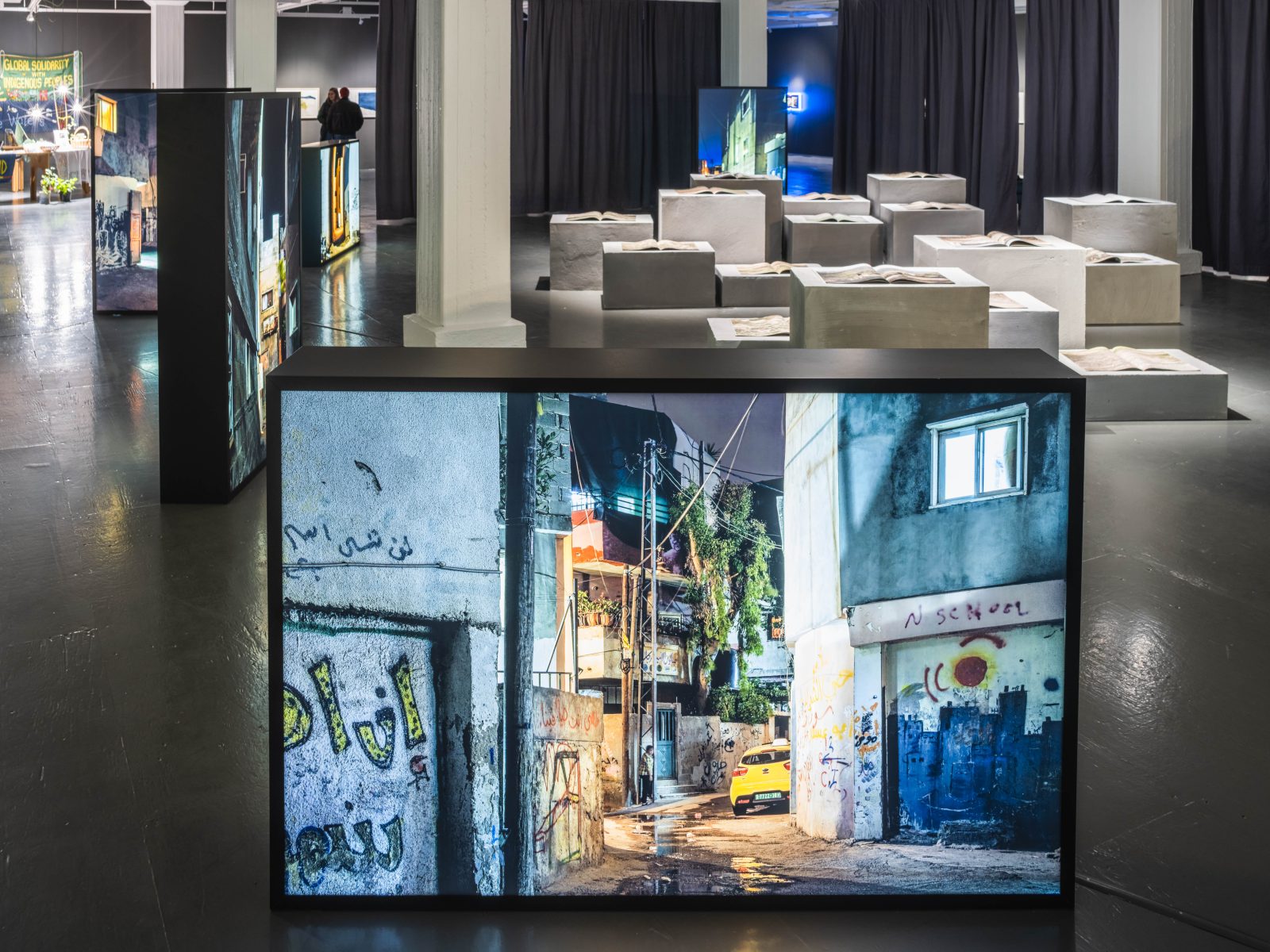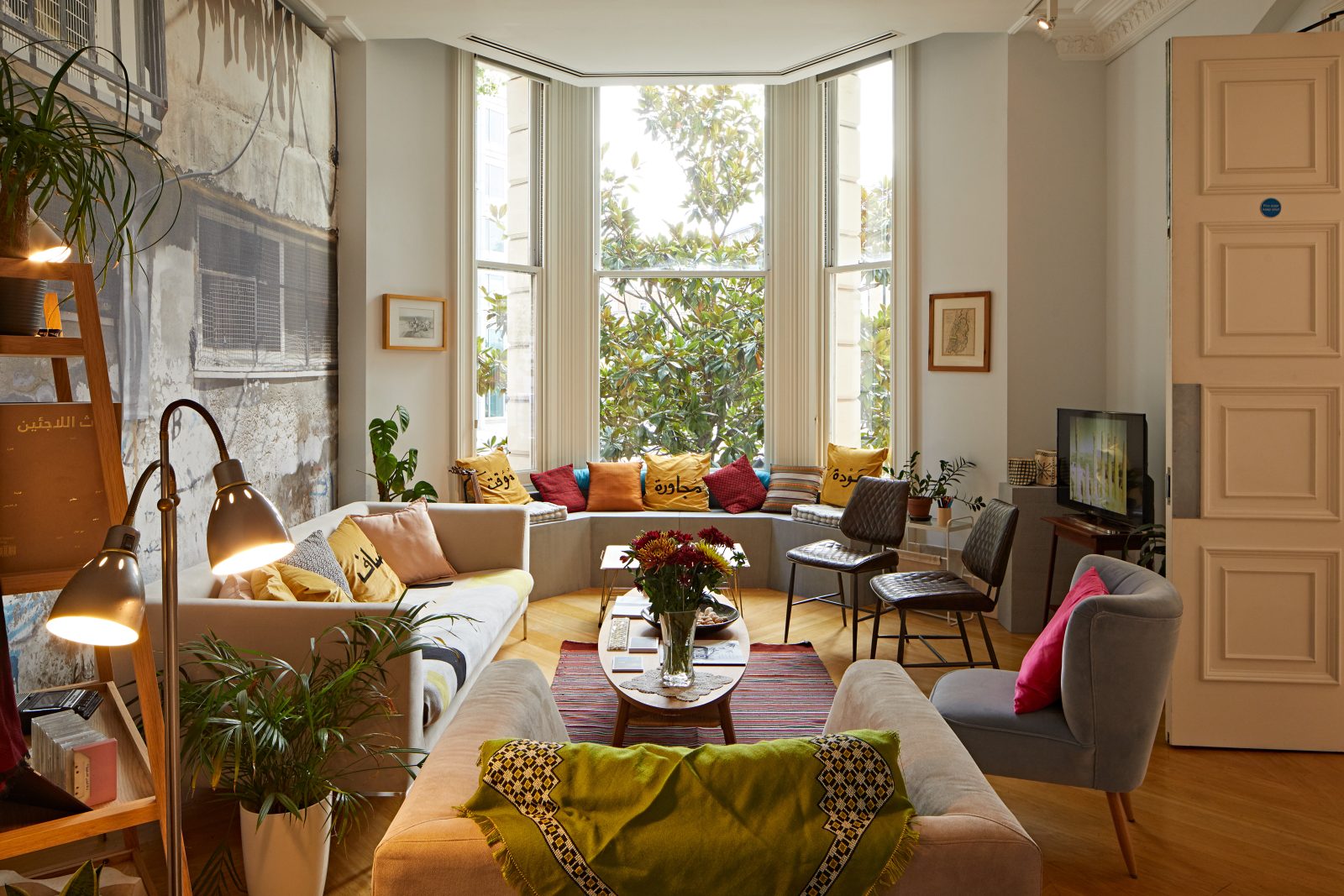Refuge is a temporary state caused by wars, climate change and social, economic and political crises. But what happens when a temporary situation becomes permanent? In recent years, the Permanent Temporariness condition imposed on refugees forced to live in refugee camps has spread to underprivileged sections of society, from precarious workers to immigrants and students. Reflecting on the displacement of Palestinian refugees and the plight of illegalized migrants in Europe, with our guests we will speculate on how to act within and against the state of permanent temporariness to challenge the status quo. With: Hayfaa Chalabi, Shafiq Kafar, Sarri Elfaitouri, Sharham Khosravi, Shafiq Omar Kakar.
The programme entails 5 sessions interrupted and connected by music, food, and group discussions
Hosted by Sandi Hilal & Alessandro Petti, Hayfaa Chalabi, Shafiq Kafar, Sarri Elfaitouri, Shahram Khosarvi
Session I
Refugee Heritage
Refugee camps are established with the intention of being demolished. As a paradigmatic representation of political failure, they are meant to have no history and no future; they are meant to be forgotten. The history of refugee camps is constantly being erased and dismissed by states, humanitarian organizations, international agencies and even by refugee communities themselves, who fear that any acknowledgment of the present condition in the camp may undermine their right of return to their place of origin. The only history that is recognized is one of violence and humiliation. Yet the camp is also a place rich with stories, narrated through its urban fabric.
In tracing, documenting, revealing and representing refugee history beyond the narrative of suffering and displacement, Refugee Heritage is an attempt to imagine and practice ‘refugeeness’ beyond humanitarianism. Such a process requires not only rethinking the refugee camp as a political space: it calls for redefining the refugee as a subject in exile and understanding exile as a contemporary political practice that is capable of challenging the status quo. The recognition of “the heritage of a culture of exile” constitutes a new perspective from which social, spatial and political structures can be imagined and experienced, beyond the idea of the nation-state.
Host: Alessandro Petti is a professor of Architecture and Social Justice at the Royal Institute of Art in Stockholm and co-director of DAAR (Decolonizing Architecture Art Residency) an architectural studio and residency program centre around the relation of politics and architecture. Latest publication, Refugee Heritage (Art and Theory, Stockholm 2022), and Permanent Temporariness (Art and Theory, Stockholm 2021).
music interval
Session II
Combat Breathing
What divides the world today is the right or lack of the right to breathe. Our world is a suffocating world, in which some people are not allowed to breathe. The illegalised people on the move who are suffocated to death in crowded trucks; travellers without papers who drown in the Mediterranean Sea; African Americans who are suffocated to death under the knees of a brutal racism. At the same time, growth-dependent fossil capitalism has caused environmental degradation and air pollution in major cities in the Global South, where breathing has become struggling. This is what Frantz Fanon called “combat breathing”. A suffocating world requires resistance. The “Black Lives Matter” and “Migrant Lives Matter” movements echo Fanon, who said that the colonised revolt because it has become impossible for them to breathe.
We cannot breathe! Can you?
Host: Shahram Khosravi is a former taxi drive and currently an accidental Professor of Anthropology at Stockholm University. Latest publication, Seeing Like a Smuggler: Borders from Below, (edited volume Mahmoud Keshavarz) London Pluto Press 2022; Waiting. A Project in Conversation, Berlin (2021)
music interval
Session III
Challenging institutional definitions of temporal experiences of asylum
In this session, we attempt to understand the term ‘‘non-EU citizen’’ as a transient identity that can be defined beyond institutional frameworks defying terms such as ‘‘migration crisis, alien, integration crisis, global refugee crisis’’. The aim of this session is to create a space in which we can collectively understand our attitudes towards temporal experiences of asylum in the EU. Together, we will create networks of care and tools of knowledge to acknowledge and question problematic expectations of accessing such identities. We will look beyond institutional definitions around experiences of asylum and instead, acknowledge our reproductions of politicised fear, apathy, and hate towards such identities.
Host: Hayfaa Chalabi is an illustrator and storyteller interested in the role of illustration to re-contextualise narratives, histories, and discussions. Chalabi uses her power as an illustrator and storyteller to spark discussions about different socio-political issues. Her work revolves around the misuse of power structures in our society and the intersections of visual culture, sexuality, gender, and migration. Currently, Chalabi works as a senior lecturer at the University of Arts in London (UAL).
Session IV
Libya’s Interregnum: Spatial archives of trauma and transformation.
This is a tale that traces temporal spaces that developed throughout Libya’s history as an ideological persistent and systemic pattern of “Emergency” making – shaped by the “transitional governments”, where the country has never in fact been in a stable political and economic state.. Political, cultural, economic, and spatial boundaries become blurred, full of gaps and open for endless reinterpretations.. The Libyan city grows monstrously through its intractable lines of flight, and urban informality overlaps, coexists, or sometimes even resists the state’s absence and informality, where official laws of justice and ownership are not activated. This liminal space created a new way of place making, or rather, a process of un-making space devoid of the rigid historical identities and myths.. This tale questions the current space and time in the Libyan city as what Antonio Gramsci called an “interregnum”… a permanent temporary space of violence, refugee, survival, but also transgression, resistance and potential transformation.
Host: Sarri is a 25 years old conceptual architect, artists, art curator, and cultural producer based in Benghazi, Libya, and the founder of TAJARROD Architecture and Art Foundation. Sarri’s work is centered on an interdisciplinary synthesis between architecture, art, and the social sciences, dedicated to generating a critical understanding and attitude towards the built environment, and to investigating contemporary socio-cultural issues, identities and ideologies, and their impact on architecture and cities.
music interval
Session V
The Living Room
Located between the domestic and the public sphere, Al-Madhafah, in Arabic, is the living room dedicated to hospitality. It has the potential to subvert the role of guest and host and give a different socio-political meaning to the act of hospitality. It seeks to mobilize the condition of permanent temporariness as an architectural and political concept able to challenge the binaries of inclusion and exclusion, public and private, guest and host. It activates the rights of temporary people to host and not to be eternally a guest, the right to claim life in the new destination but without feeling obliged to revoke the desire to belong to the life back home. Al Madhafah is constituted by a network of various living rooms activated in six different locations: the house of Yasmine and Ibrahim (1) and The Yellow House in Boden supported by the Public Art Agency Sweden (2), ArkDes Museum in Stockholm (3) Fawwar refugee camp in south of the West Bank (4), in the living room of Sandi and Alessandro in Stockholm supported by the Arab Fund for Art and Culture (AFAC) (5) and the at Vanabbe Musemm in Eindhoven with Shafiq Omar Kakar
Hosts: Sandi Hilal is visiting professor at Lund University and co-director of DAAR (Decolonizing Architecture Art Residency) an architectural studio and residency program centre around the relation of politics and architecture. Latest publication, Refugee Heritage (Art and Theory, Stockholm 2022), and Permanent Temporariness (Art and Theory, Stockholm 2021). Shafiq Omar Kakar born in Laghman, Afghanistan, immigrated to Kingdom of The Netherlands in 1998 where he now lives and works as an artist, curator and researcher. Shafiq coördinate The Van Abbemuseum Living Room ( Madafah) since 2019. He also coordinated The Madafah in U-Jazdowski contemporary art museum in Warsw Poland. He initiated a long-term research project called The Afghan Art Research Project in The Van Abbe Museum in The Netherlands.
